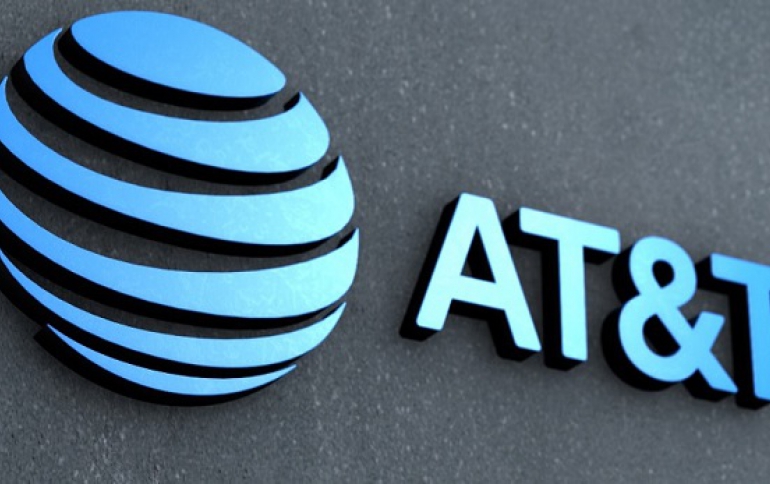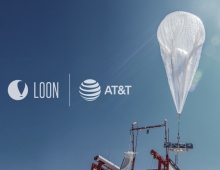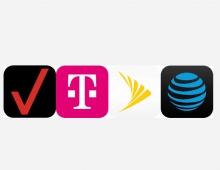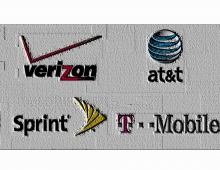
Snowden Docs Confirm AT&T and NSA's Surveillance Partnership
The latest "leak" of documents disclosed by former U.S. intelligence contractor Edward Snowden shows that AT&T has been a close partner for the National Security Agency's Internet spying activities than was previously known.
AT&T was the most critical telecom player in the NSA's surveillance efforts and its willing participation in mass spying on both foreign and U.S. citizens has apparently been crucial in helping the U.S. agency take advantage of bulk record collection laws, according to a report in the New York Times.
The document notes AT&T's "extreme willingness to help" with NSA's surveillance within the United States, some of which appears to be done in "partnership"? rather than required by law.
"We do not provide information to any investigating authorities without a court order or other mandatory process other than if a person's life is in danger and time is of the essence," AT&T said Saturday, in response to the report. "For example, in a kidnapping situation we could provide help tracking down called numbers to assist law enforcement."
The paper identify AT&T as the telecom player behind the "Fairview" program, a key part of the NSA's mass surveillance activities. In 2011, for example, the NSA's budget for Fairview was $188.9 million, twice the amount spent on Stormbrew, a surveillance program involving Verizon, according to the report.
That year, AT&T started to hand over 1.1 billion domestic cellphone calling records a day to the NSA in an effort to ramp up operations prior to the 10th anniversary of the Sept. 11, 2001, terrorist attacks on the U.S., according to the report.
In 2012, AT&T gave technical help to the NSA to carry out a secret court order for the wiretapping of all Internet traffic at the U.N., a company customer, in New York, according to the examination of the Snowden documents.
In 2013, AT&T deployed surveillance equipment in at least 17 of its Internet hubs in the U.S., many more than Verizon, and the company's engineers were the first to test out new surveillance technology developed by the NSA, the report added.
An NSA data collection program, allegedly called Prism, is thought to have tapped into servers at a variety of tech companies. Various documents have also shown that the NSA has hacked into emails of leaders of U.S. allies as well as into networks and equipment of foreign companies including China-based Huawei.
The document notes AT&T's "extreme willingness to help" with NSA's surveillance within the United States, some of which appears to be done in "partnership"? rather than required by law.
"We do not provide information to any investigating authorities without a court order or other mandatory process other than if a person's life is in danger and time is of the essence," AT&T said Saturday, in response to the report. "For example, in a kidnapping situation we could provide help tracking down called numbers to assist law enforcement."
The paper identify AT&T as the telecom player behind the "Fairview" program, a key part of the NSA's mass surveillance activities. In 2011, for example, the NSA's budget for Fairview was $188.9 million, twice the amount spent on Stormbrew, a surveillance program involving Verizon, according to the report.
That year, AT&T started to hand over 1.1 billion domestic cellphone calling records a day to the NSA in an effort to ramp up operations prior to the 10th anniversary of the Sept. 11, 2001, terrorist attacks on the U.S., according to the report.
In 2012, AT&T gave technical help to the NSA to carry out a secret court order for the wiretapping of all Internet traffic at the U.N., a company customer, in New York, according to the examination of the Snowden documents.
In 2013, AT&T deployed surveillance equipment in at least 17 of its Internet hubs in the U.S., many more than Verizon, and the company's engineers were the first to test out new surveillance technology developed by the NSA, the report added.
An NSA data collection program, allegedly called Prism, is thought to have tapped into servers at a variety of tech companies. Various documents have also shown that the NSA has hacked into emails of leaders of U.S. allies as well as into networks and equipment of foreign companies including China-based Huawei.





















